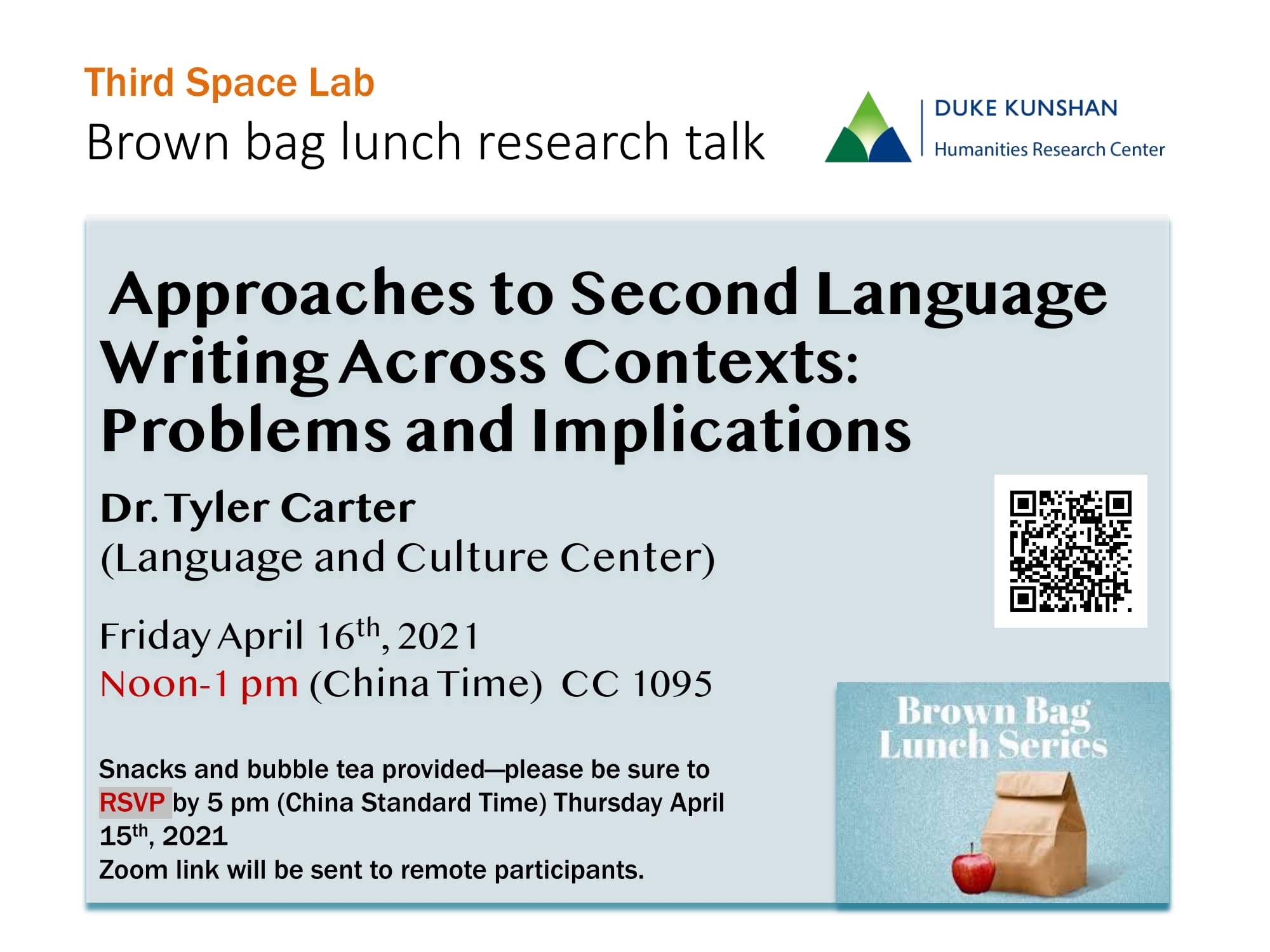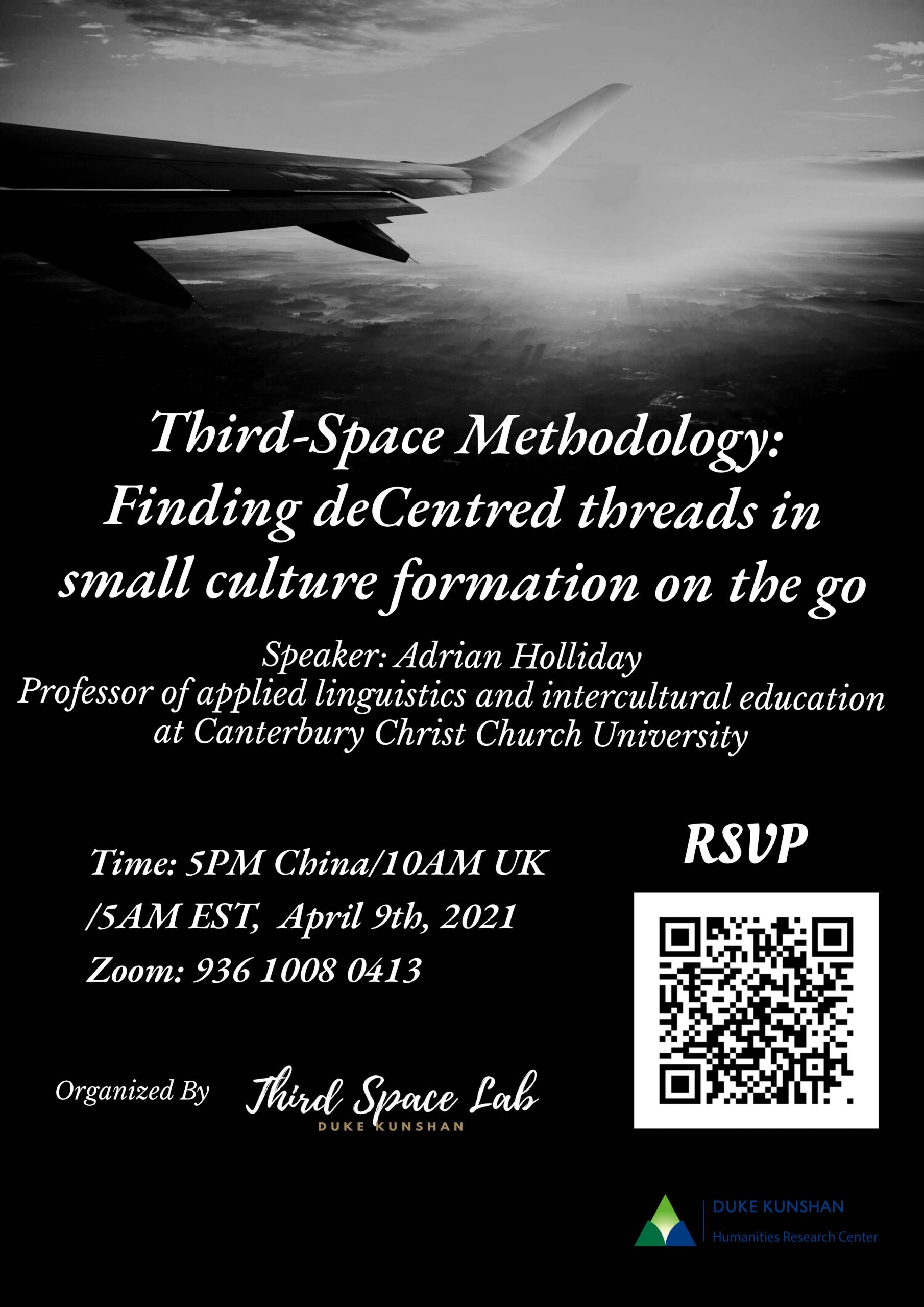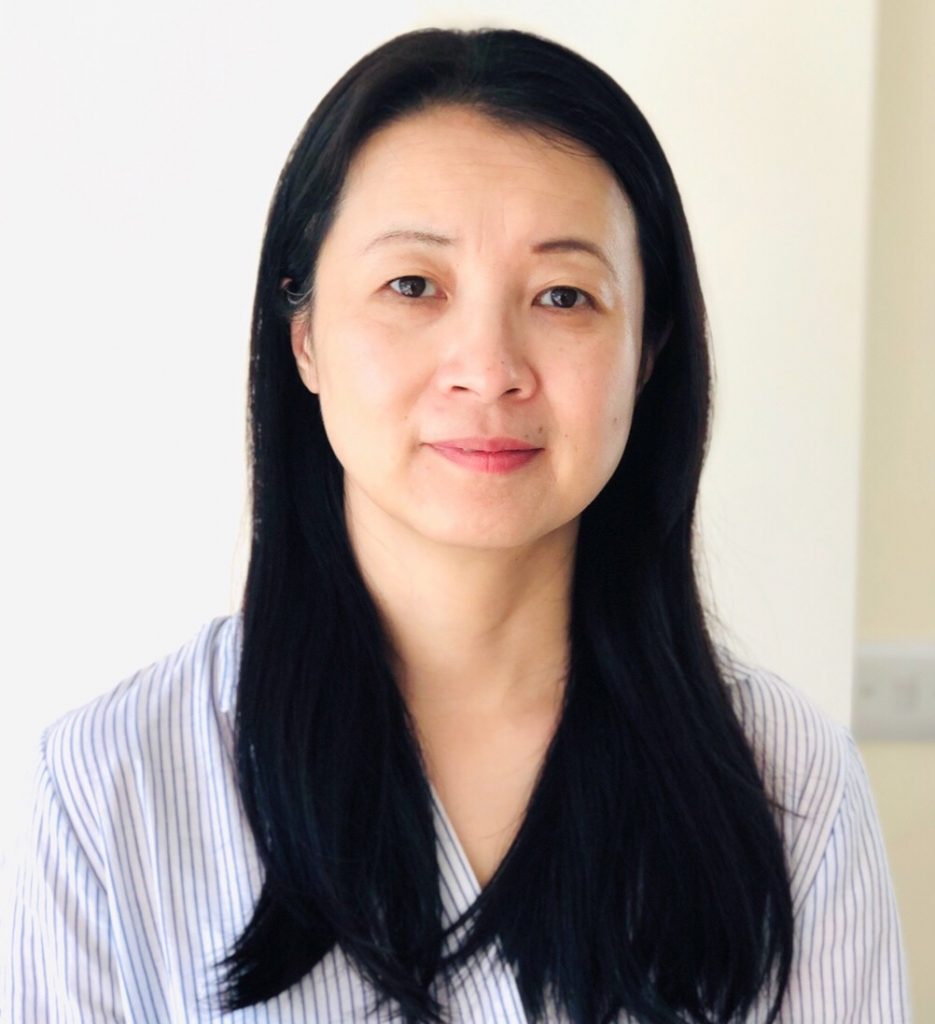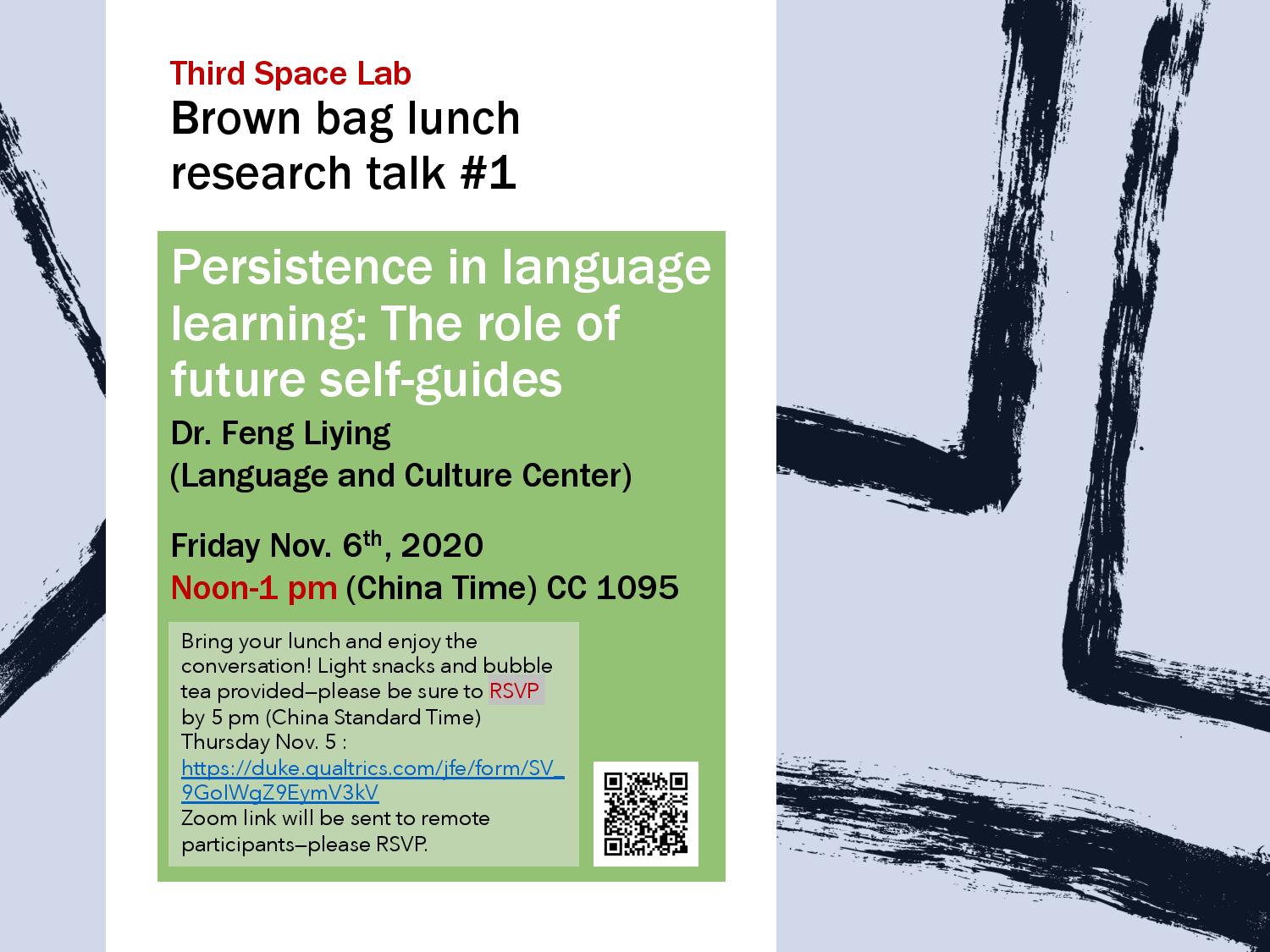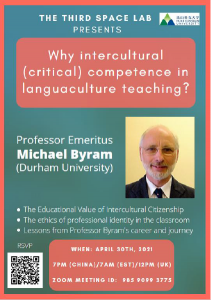
Dear all,
You are cordially invited to the guest lecture of the Third Space Lab by Professor Emeritus Michael Byram (Durham University, UK). We hope you will join us!
Please RSVP here: https://duke.qualtrics.com/jfe/form/SV_41OmjcdHRmWRALs
Date: April 30th, 2021 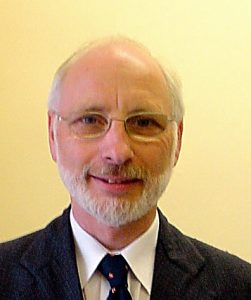
Time: 7 pm (China time) / 7 am (EST) / 12 pm (UK time)
Zoom Meeting ID: 985 9099 3775
Why intercultural (critical) competence in languaculture teaching?
I will begin with a personal answer to my title question, and describe my professional journey from studying languages to teaching and researching intercultural citizenship in language teaching, and across the curriculum.
I will then argue for the educational values of teaching for intercultural communicative competence and intercultural citizenship, using both an example and an educational perspective. The example will demonstrate that language teaching and intercultural competence teaching are inter-related and mutually supportive: language learning is improved by teaching for intercultural citizenship.
My position has however implications for teachers which cannot be ignored. There are ethical issues to consider and challenges to professional identities, and I will raise these for discussion.
Bionote
Michael Byram is Professor Emeritus at Durham University (UK) and Research Professor at Sofia University, Bulgaria. He studied Modern and Medieval Languages at King’s College, Cambridge, including a PhD in Danish literature, and then taught French and German in secondary and adult education. He then moved to Durham University, where he was involved in teacher training and research on languages and education. His books include Minority Education and Ethnic Survival (1986) and Teaching and Assessing Intercultural Communicative Competence – Revisited (2021). He was Adviser to the Council of Europe Language Policy Division and a member of the working group which produced the Council of Europe’s Reference Framework of Competences for Democratic Culture.
To think about in advance:
When people ask me “What do the English think about…. (e.g. global warming or capital punishment or Donald Trump etc etc.)”, they think that, because I am English, I can tell them. Yet I hesitate and try to avoid answering. If they ask me if ‘he goed to London yesterday’ is correct, because I am English, I don’t hesitate; I know the answer. Is it possible to know about ‘English culture’ – or any other? Instead of ‘English’ put your own word and ask yourself how you would answer.
How important is it to teach/learn knowledge? Which knowledge? How important to teach/learn skills? Which skills? How important to teach/learn attitudes? Which attitudes?
To watch in advance:

